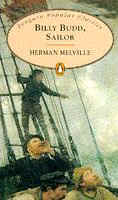|
Dealing with Mean and Jealous People. 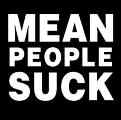 Quick Comebacks Are A Last Resort. Use A Little Psychology To Understand Them. It Will Help You Not Take Their Barbs Personally. by William Schmidt, Ph.D. I'm talking here about people who cannot be reasoned with and think they can do no wrong and must blame someone else. I'm talking about sarcastic, snippy, rude, chip-on-shoulder types who enjoy putting you down. These are the malicious, mean-spirited bullies, psychological and physical. They are very envious of others' successes and will do their best to prevent someone else from succeeding. Some may be truly sadistic. Most are simply very unhappy, frustrated and socially isolated. Remember that their bad behavior towards you is probably typical of how they treat others. They may actually be looking for arguments and hostility to confirm their own negative view of the world. Should we tell them off? Whimper spinelessly, 'sorry'? Hit 'em back? Leave 'em alone? Recommend therapy? All these are options. It's not easy under stress to make the best choice. Of course, we should understand that it's them, not us, as long as we take ownership of what we are truly responsible for. We should try, I think, to defuse their hostility by not responding in kind. Why encourage them with negative rejoinders? Offering something else that is positive may work. Staying calm is always best. Their negativity feeds on others' emotional responses. If one can't stay calm, it's best to leave them. You can try writing them, to give them new information by email that perhaps they had not considered. But above all, don't take what they say personally. It's them. This is all very easy to say. It's much harder to do. The problem is that turning the other cheek seems to bring out the worst in some people. Though, I've seldom had to resort to clever and devastating retorts to silence a bully, because I'm pretty big, it is fun to ponder a bully's reaction if they were treated to some of these glorious "come-backs" that I came across. More important, I want to share some thoughts on aggression, anger and meanness, that I have read in psychological essays and in literature. That doesn't prevent me from thinking about perfect come-backs, if I were pushed too far. So I read these and laughed. Maybe you will laugh at or use one or more of them if provoked. Sometimes, showing you are verbally armed will stop a verbal bully. It would be nice to think one would never, ever have to resort to meanness in kind. Almost always, one can do better than return an insult with an insult. Understanding their hurt is at a deeper level is usually a better solution, so that you don't take their insults personally.. Replies to the bully who won't relent: As an outsider, what do you think of the human race? Hi! I'm a human being! What are you? I won't call you stupid because that would be an insult to stupid people. Did your parents ever ask you to run away from home? Do you ever wonder what life would be like if you'd had enough oxygen at birth? I'd like to help you out. But the root causes of your discontent are so deeply rooted, it would take years of intensive professional help? I'll never forget the first time we met - but I'll sure keep trying. If ignorance is bliss, you must be the happiest person alive. ------------------------------------------------------------------------------------------------------------------------------------- Personal Experiences When I was in college I went on Freedom Rides in the 1960s, to register to vote Black Americans in the South. We were warned by Quakers at Swarthmore and SNCC (the organizers) about the angry people who would do most anything to provoke us. They were right. That is one of the things that made me become a Quaker later on. I never felt more hatred than on these trips to the South. I must have always had such proclivities. I remember standing up verbally to a bully in a boys camp in the fourth grade and being thanked by many of my fellow campers. That was a transformative experience. And in high school, I remember sitting on the players' bench in a basketball game (which is what I was good at, the sitting, not the playing (humor - there) and my team-mate, who was more frustrated than I was at not playing, for some reason got it in his head to provoke me into telling him to "go to hell" or some such thing. But I wouldn't do it. He persisted and got angrier and angrier. UNDERSTANDING THEIR PSYCHOLOGY WORKS BETTER The Pecking Order Why are people so mean, sometimes? There may be "bad seeds", I suppose. But the main reason is that they are hurting themselves and want to peck at someone else to try to feel better. It's the pecking order thing. With chickens, a hierarchical social structure is said to develop to minimize uncontrolled and random inter-chicken violence. Chickens only are to peck on those other chickens that earlier conflict has shown to be weaker. They can peck without fear of retaliation. Dominance means access to food and mates. Some interesting links about the pecking order of humans. Love, Shame and The Human Pecking Order 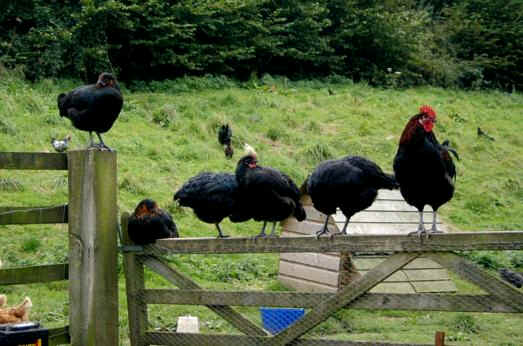 Root Causes of Aggression Frustration makes for aggression. I still remember reading about it when I wrote a term paper on the "Psychological Roots of Nationalism:". The Germans after World War I were a prime example. When goals are blocked, people become aggressive and mean-spirited towards others. And they can easily be turned against those that they are made to believe are the cause of their frustration. It is always easier to blame someone else, so scapegoats are proffered and found. "Identification" with flag and country, builds up the weakened ego. Displacement", I wrote, was similar to the pecking order phenomenon. Displacement redirects the hostility from those that might stroke back to those that won't strike back. It would be a better world if people would only release their anger at cushions or| punching bags. Anyway, my very kind professor encouraged me at a point in my youth where it has helped all my life. Poverty and Child Abuse 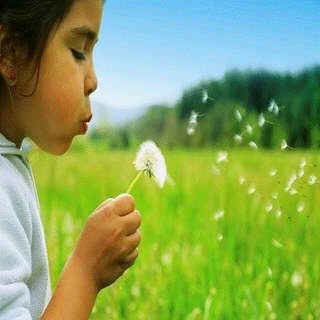 When I was a statistician and researcher for the State of Washington, I was charged with helping develop a better management information system for child protection. I had to read the case studies of many, many cases of child abuse. I was struck by the economic hardships that underlay so much child abuse. Unemployment, poverty and the pressures of working long hours for too little pay were dominant themes in these files. Years later research supports my conclusion. "Poverty is the most frequently and persistently noted risk factor for child abuse." (American Family Physician) "Poverty is the single best predictor of child abuse and neglect." (American Humane) Child Abuse Poverty Causes Child Abuse Poverty’s Relationship with Child Abuse and Neglect Fighting Poverty Would Reduce Child Abuse - Child Abuse Much mental illness stems from poverty and arbitrary social and religious taboos. Thomas Szasz.in his controversial The Myth of Mental Illness: Foundations of a Theory of Personal Conduct wrote: "If you talk to God, you are praying; If God talks to you, you have schizophrenia. If the dead talk to you, you are a spiritualist; If you talk to the dead, you are a schizophrenic."[2] While people behave and think in ways that are very disturbing, this does not mean they have a disease. .
Abused Children Become Tormented Abusers
|
Now a word from our sponsor: Visit our
home-page www.tigersoft.com
Have You Considered Trading Stocks for A Great Living?
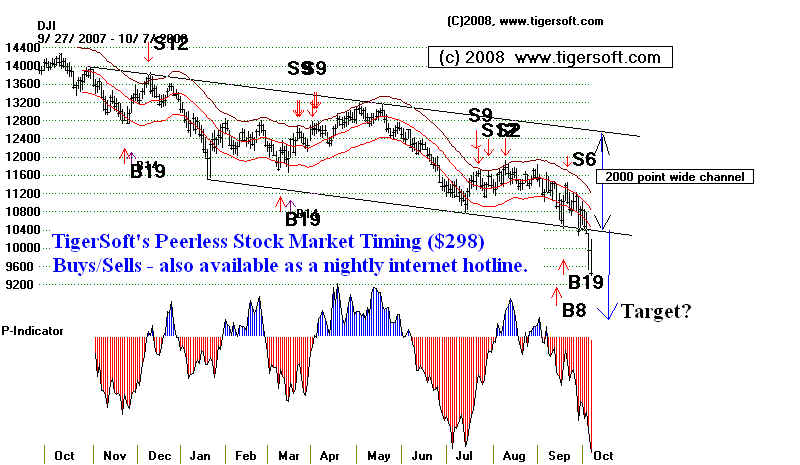
Investing
Index Options
Commodity/Futures Trading
Swing
Trading Day Trading
Visit
www.tigersoft.com for more details.
Also
see TigerSoft Blogs for ideas
about investing and the future of the job market, as affected by political choices.

